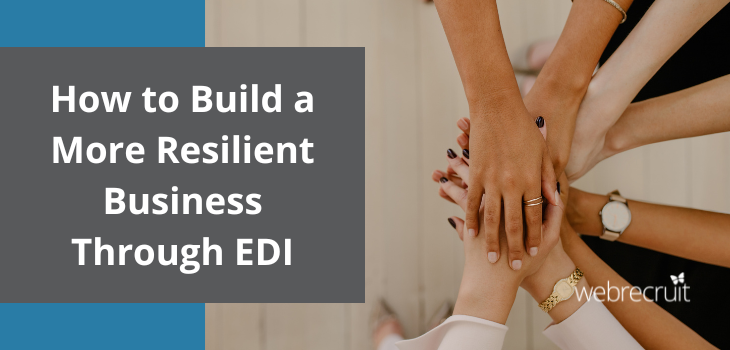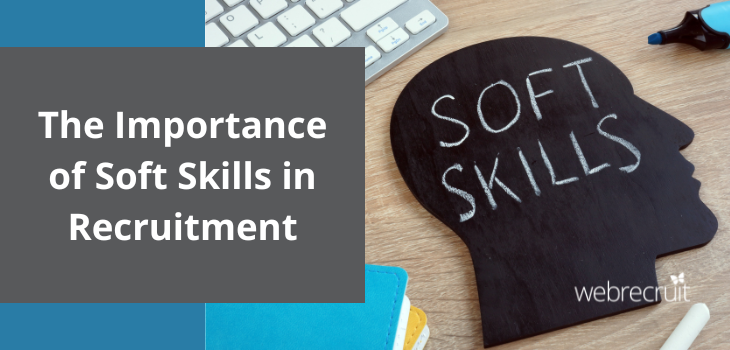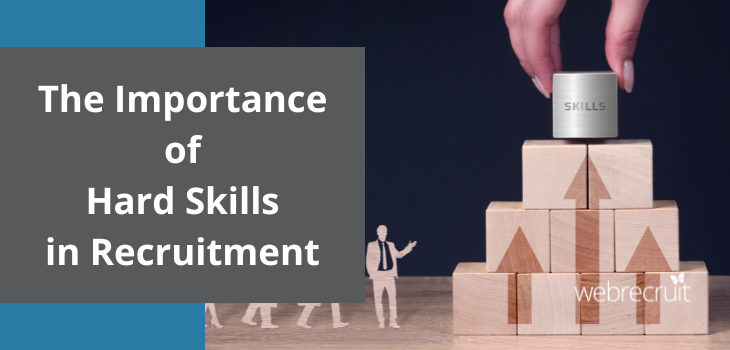2020 onwards has brought into focus the need for businesses to be able to adapt to rapidly changing and often challenging environments.
Many organisations have had to implement enormous adjustments to their operations and business strategies. Yet not all organisations have struggled in the same way. In fact, some organisations have not only survived, but have recovered quickly and in some cases have evolved to become stronger and more profitable.
How?
The answer lies in resilience through a renewed focus on EDI efforts.
What is resilience and why do we need it?
Resilience is the ability of an individual or organisation to adapt to a new stressful environment, with the ability to overcome any problems or difficulties presented.
Crucially, resilience looks towards the future. Not only will a resilient company or individual absorb or manage change but will adapt, turning a difficult situation into an opportunity for growth and advantage.
Resilience is not simply a matter of ensuring there is enough money in the bank to survive challenging periods. Businesses are not insulated from the world around them and a resilient organisation recognises that things might not return to normal.
To be more resilient, a company must be able to quickly understand problems and provide solutions that will contribute to a stable future.
Resilience and EDI
So, what does resilience have to do with EDI?
Whilst it might seem obvious, it is the people in companies who create value, solve problems, provide solutions and offer new opportunities. Investing in building a strong, representative and skilled workforce is a sure-fire way to increase organisational success.
However, hiring candidates from similar backgrounds can lead to what is known as “path dependency”. This is where decision making is influenced by or simply copies previous decisions.
When this occurs during the hiring process, this can lead to a workforce that doesn’t reflect the world around them. This reduces the potential to spot, understand and solve problems, which can leave an organisation exposed to risk.
The best way to avoid this problem is by championing EDI during the recruitment process.
EDI should play a foundational role in any business’ hiring efforts; however, diversity is an often-overlooked opportunity to embed resilience within an organisation.
Diversity allows for creative responses to risks and challenges. By following best EDI hiring practices and encouraging a variety of perspectives and experiences, an organisation can prevent blind spots.
Simply put, diversity increases experience and representation within an organisation. By hiring from a varied pool, an organisation increases its chances of adaptation, innovation and entrepreneurship during challenging periods.
An inclusive recruitment strategy can help to plug skill shortages and create positive feedback loops in talent acquisition by attracting young talent.
In essence, equality, diversity and inclusion promote adaptability within an organisation.
Recruiting for resilience
Measuring resilience can be difficult and is often confused with streamlining or cost reduction. So, it is worth bearing in mind that EDI is one of the most cost-effective ways to integrate resilience.
A hiring strategy that uses EDI costs the same amount as a using an outdated exclusionary model. However, as a recruitment strategy that uses an EDI approach will increase resilience, the benefits of incorporating this approach are enormous!
At Webrecruit we offer EDI solutions that deliver real benefits, with great tools to power diverse teams and increase resilience.
Or read our fantastic blog series on EDI that offers further insight into the many benefits of EDI.






